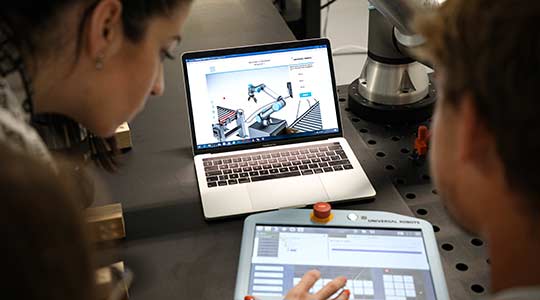
New BSc and MSc programs in Civil Engineering
We live in a world where globalization, digitalization and the technological development are moving rapidly, while climate change and environmental challenges are omnipresent and require our attention. With the new bachelor and master programs in civil engineering, SDU will not only rise to these accelerating challenges but also prepare engineers for future challenges.
The Minister for Higher Education and Science has approved a new BSc and MSc program in Civil Engineering. Professor and Head of Unit at SDU Civil and Architectural Engineering, Mikkel K. Kragh, is happy for the approval, which has far-reaching perspectives:
- When the climate changes, the world changes. We must give our students the best possible qualifications to interact with a world that is constantly changing, and that is exactly what these programs do, he says.
The aim of the programs is to enable the students to work in interdisciplinary teams where they can draw on a range of skills, e.g. building design, infrastructure, urban planning and construction processes – always with a holistic approach and with sustainability at the front.

- We live in a world with great challenges and changes. They require engineers of the future to work in new ways. That is why we have created these new programs, and at the same time they provide an amazing opportunity to build a strong research community, which will be reflected in the teaching and consequently in the engineers who are trained in civil engineering, professor Mikkel K. Kragh says.
”We will be drawing on SDU’s strengths in robotics, and the students will also learn about digitalization and urban resilience
Important interdisciplinarity
At SDU, education and research form an inseparable partnership, not just as two parallels but as a unity with mutual interaction between research activities and teaching of the newest knowledge. The new programs in civil engineering will draw on several fields where SDU are important players.
- We will be drawing on SDU’s strengths in robotics, and the students will also learn about digitalization and urban resilience – meaning the impact of climate and social changes on urban areas – and how this can be transferred to the architecture and building design of the future, professor Mikkel K. Kragh says.
To put it briefly, the purpose of the programs is to train civil engineers who can combine knowledge and skills on construction with special skills in sustainability and digital construction.
The programs accept students from fall 2020, and it is expected that around 40-50 people will apply.